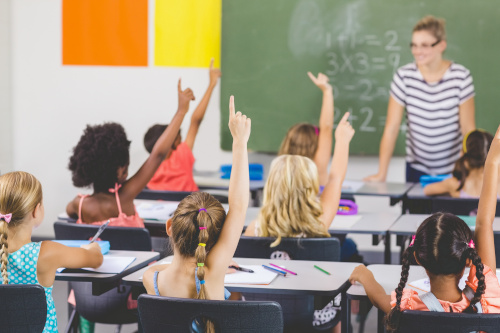Schools do so much for a community. They provide a safe place for children to learn and grow each day, filled with educators who truly care. However, as a parent or educator, it’s important to understand that many schools aren’t being used to their full potential.
When utilized properly, local schools can uplift safety in your community, providing a place outside of traditional school hours for children and families to feel secure and supported.
The task of neighborhood safety shouldn’t fall solely on teachers and administrators. However, these individuals who have regular contact with local youth can spearhead the initiatives that promote safety in the community.
If you’re not sure where to get started with that kind of promotion, let’s cover a few ideas that can increase the role schools play in community safety and security.
Community Outreach Programs
One of the best ways to utilize local schools is to transform them into community centers when classes aren’t in session. School outreach programs provide countless benefits for kids and teens. They bring resources into the buildings that keep young people engaged while providing a place of safety after school. Some of the biggest benefits include:
- Continued education on specific issues;
- Behavioral changes;
- The promotion of civic engagement;
- Improved student outcomes.
If you’re not sure how to transform your space into a community center, think about what your neighborhood really needs. Some teachers could volunteer to teach specialized classes. You could open up the gym to offer sports programs to kids and adults alike. Professionals from the community might be willing to come and teach parents about things like financial health and self-care.
Related:
5 school safety questions your district should be prepared to answer
Learn to align your communication strategies with school safety
Not only do community centers and outreach programs provide a safe space for kids and families to spend their afternoons and evenings, but they also bring communities together. When people take the time to get to know their neighbors and get involved in their communities, it generally makes for a safer neighborhood. This kind of collaboration encourages people to look out for one another and build a strong, secure community full of support.
Providing Proper Nutrition
Throughout the COVID-19 pandemic, many schools across the country provided free meals for their students. Some went the extra mile and would send extra food home on weekends. For some kids, those free meals would be the only real nutrition they received each day.
Unfortunately, many government grants and forms of assistance have halted in this post-pandemic society. While some schools are continuing to offer free lunches, others have gone back to charging their kids.
If your district isn’t currently offering free or reduced lunches for local kids, you might want to consider speaking up to the community or starting a fundraiser to make it happen. It’s essential for kids to receive proper nutrition each day if they want to stay focused, grow and develop naturally, and continue to excel in school. However, a lack of available nutritious food can also cause safety issues. Some of the benefits of free school lunches include:
- Ending school food stigmas;
- Reduced food insecurity within the community;
- No more “lunch shaming”;
- Reduced bullying;
- More social solidarity.
By finding the funds to provide nutritious lunches and extra weekend meals for families, your school can also foster a greater sense of community and help families in need from having to struggle to survive.
Teaching Beyond the Curriculum
Again, the burden of student and community safety doesn’t solely need to fall on teachers. However, educators have a unique opportunity to connect with young people. Often, teachers interact with children and teens more than their parents do on a daily basis. If you’re an educator, you can use that connection to promote safe, healthy living for kids and teens in your community.
Teachers are already mandatory reporters when it comes to any dangers they might foresee, such as a minor in a relationship with an adult. However, sometimes those situations aren’t so obvious. You can use your daily interaction with teenage students to talk to them about things like dating apps for teens and the potential dangers of connecting with someone online. You might also consider talking to your school counselor about popular apps and social media sites teens are using, so you can work together to make parents aware and protect as many young people as possible.
No matter what type of neighborhood your school is in, there’s no reason it can serve as a central safety hub for the community. Whether it’s a safe place for kids to stay after school, a safe haven for families in need, or a place where kids and teens can go to get honest advice from educators and administrators, there’s no reason your local district can’t wear multiple hats and help as many people as possible. Consider bringing up some of these school safety ideas to your local school board or campaigning for them within your community.
- 7 reasons to ditch recipe-style science labs - November 22, 2024
- As a paradeducator, here’s how I use tech to help neurodivergent students gain agency - November 22, 2024
- 5 ways school districts can create successful community partnerships - November 21, 2024


